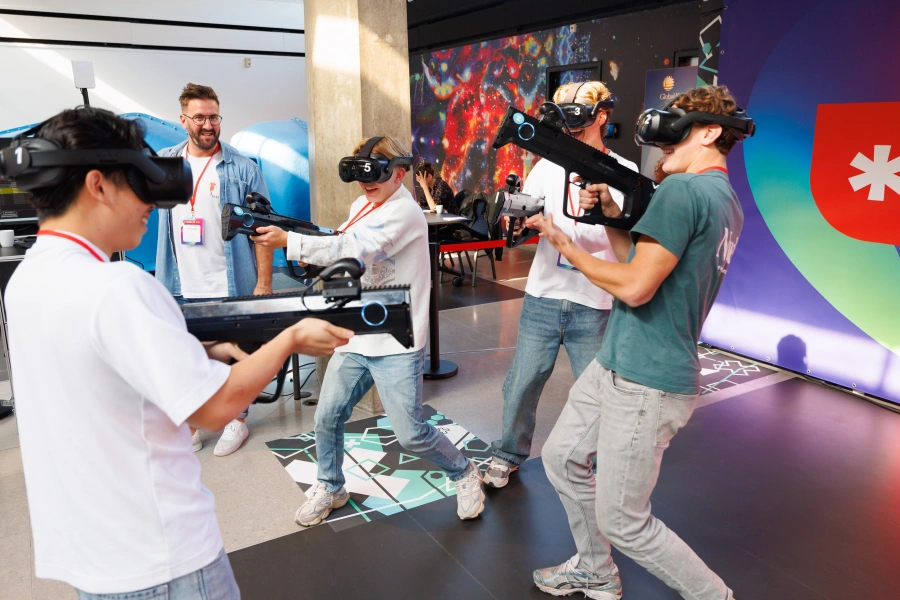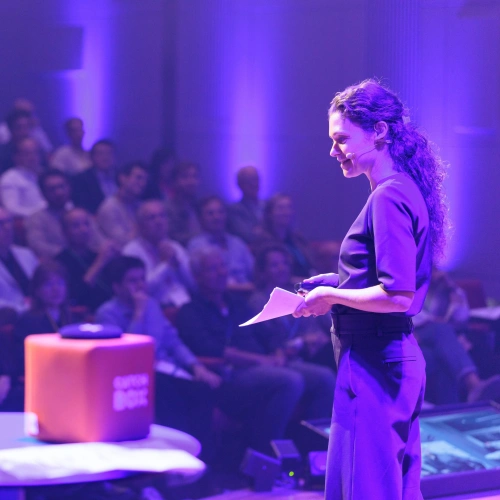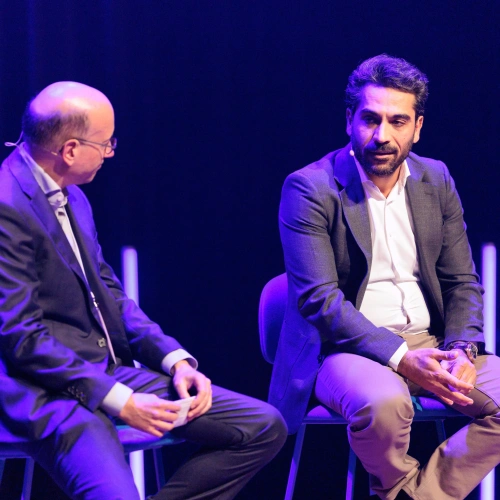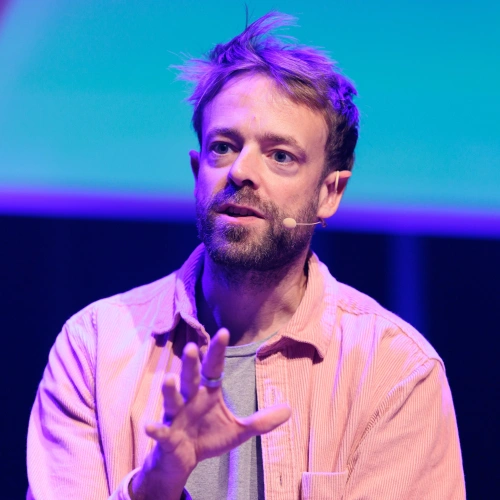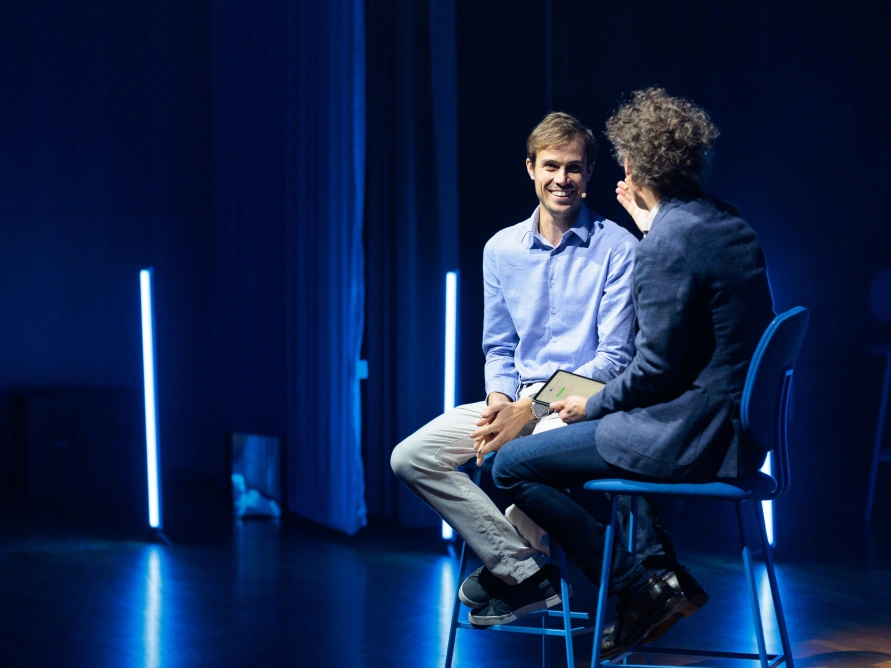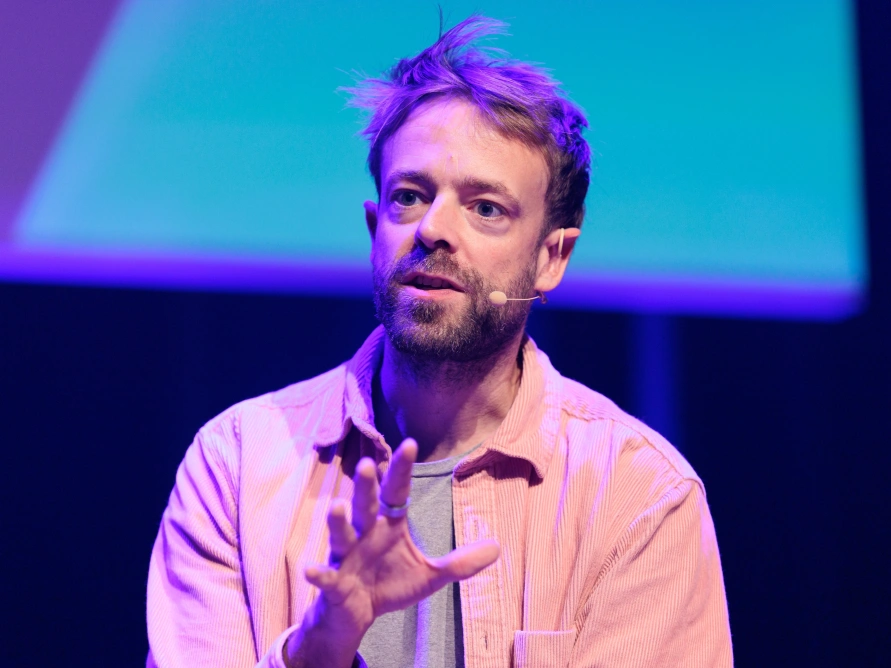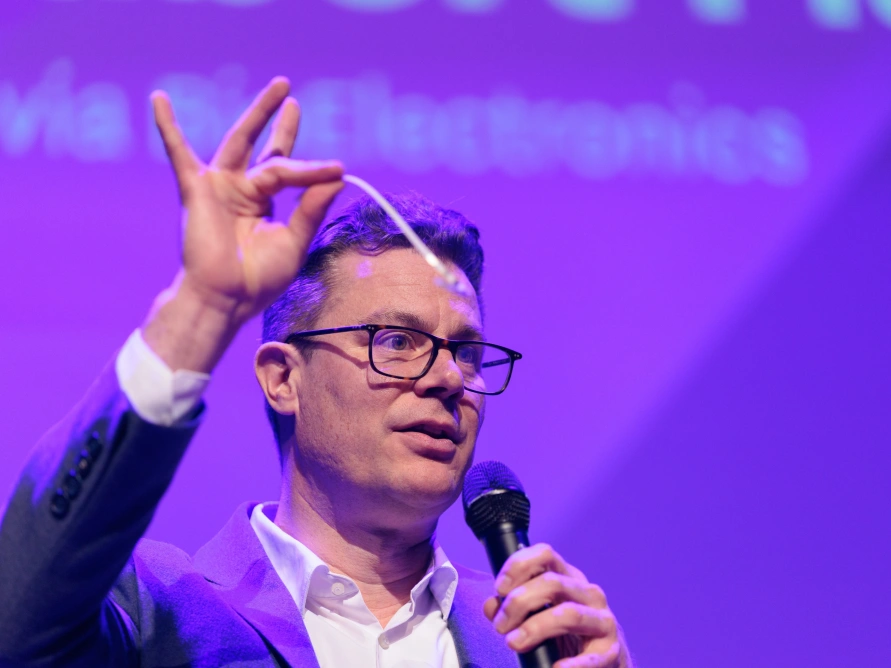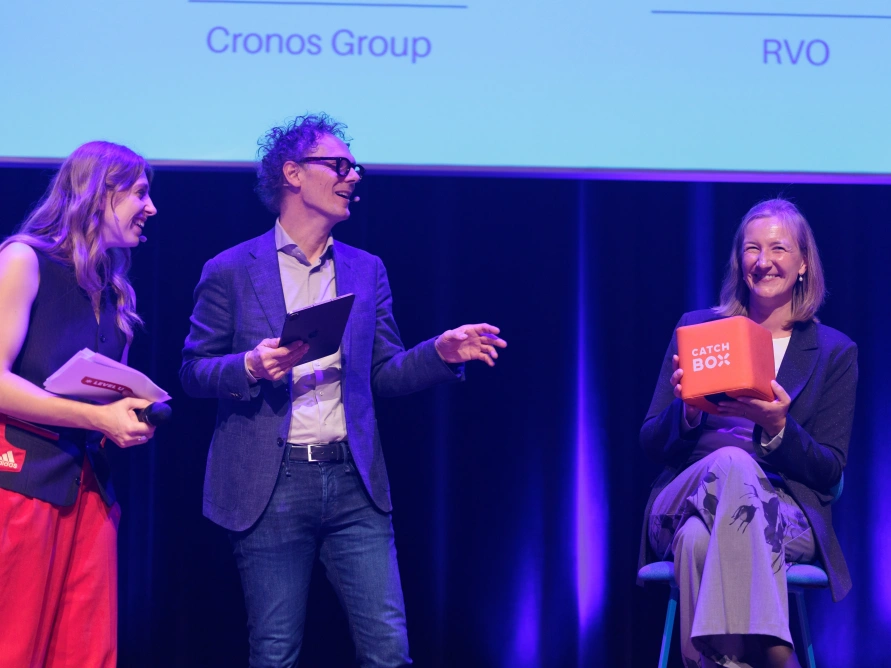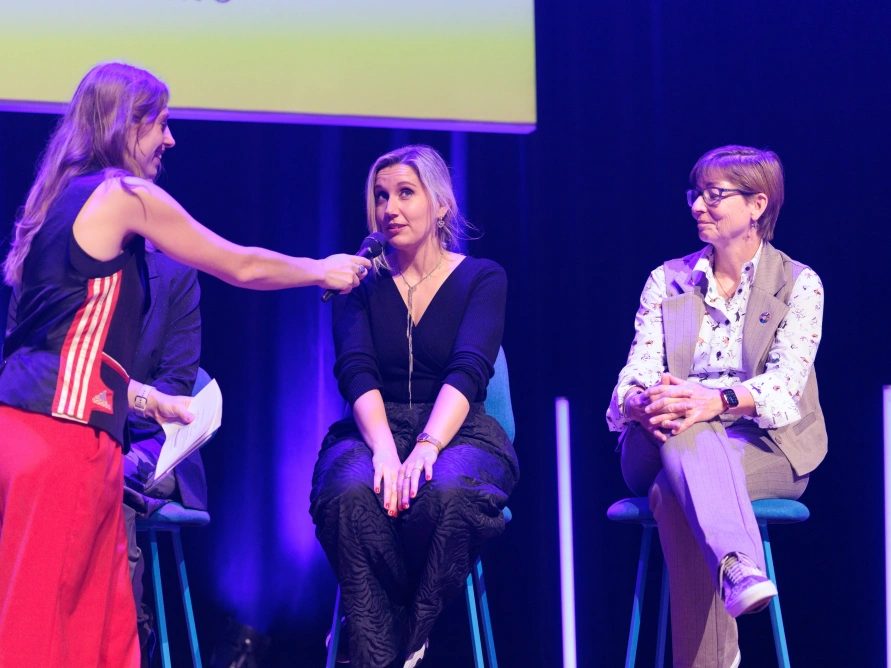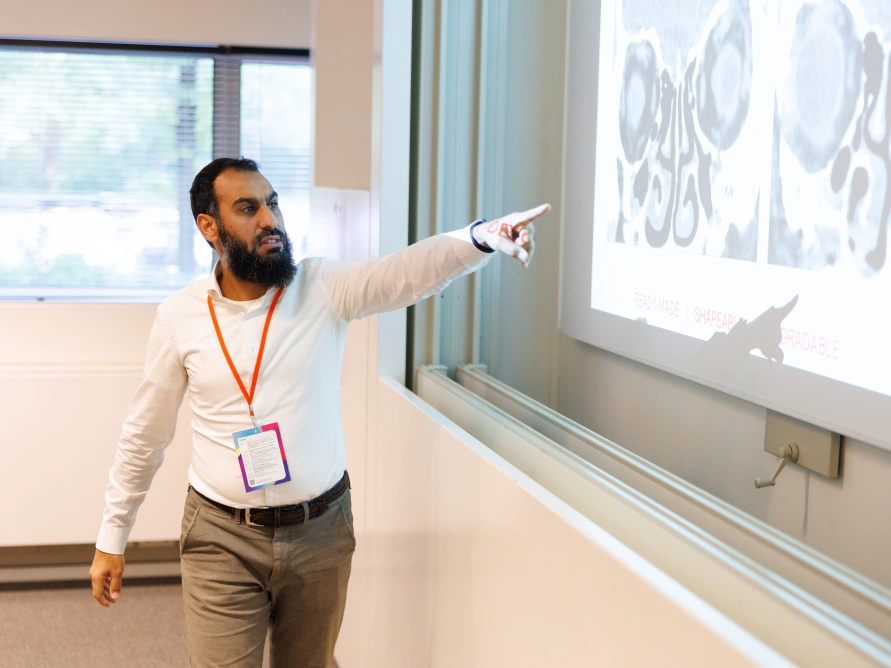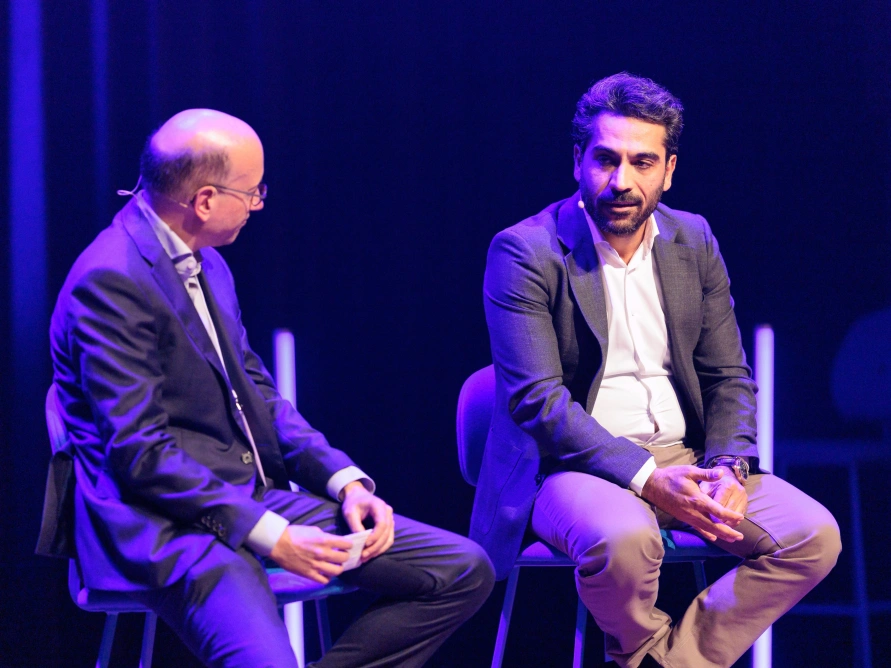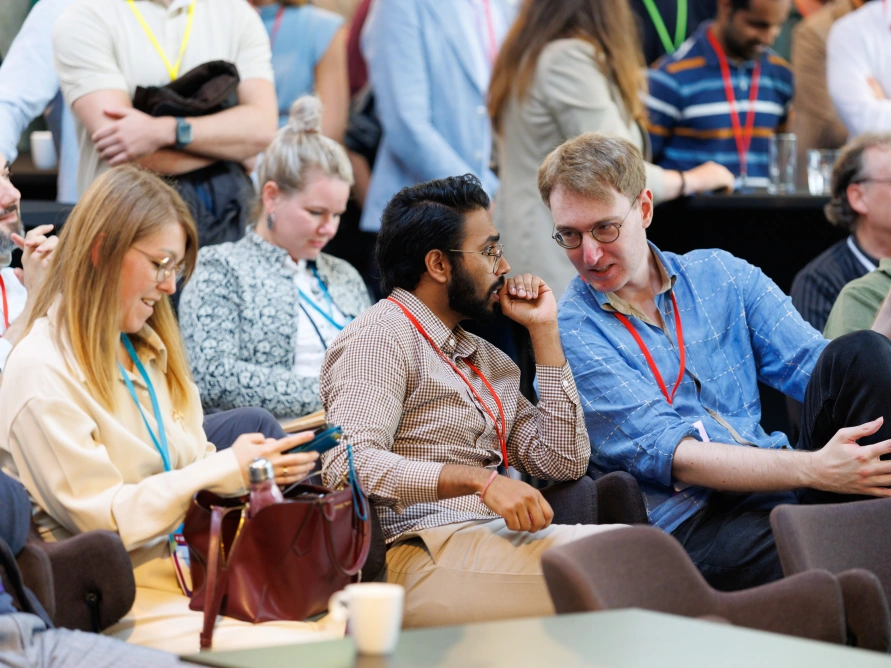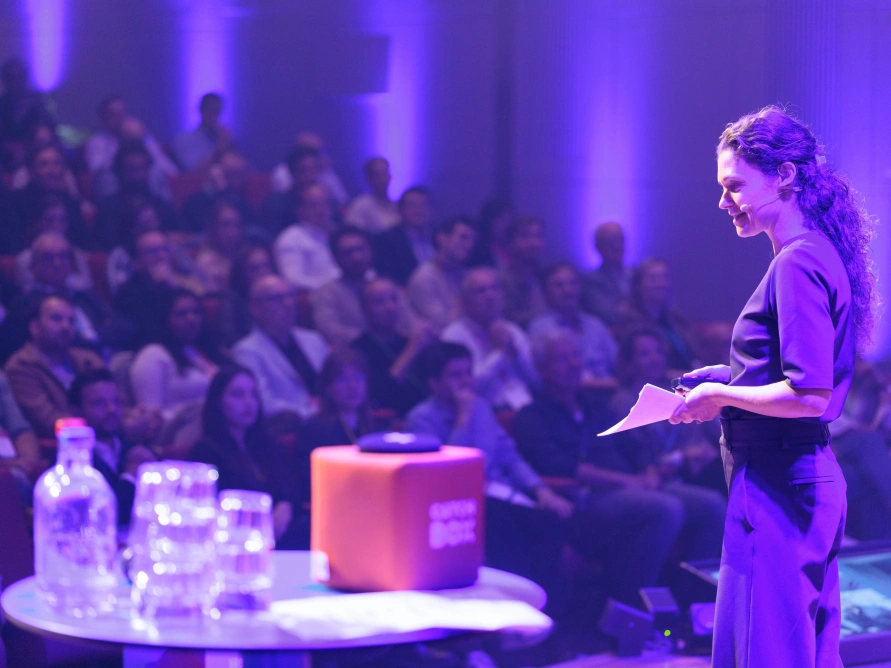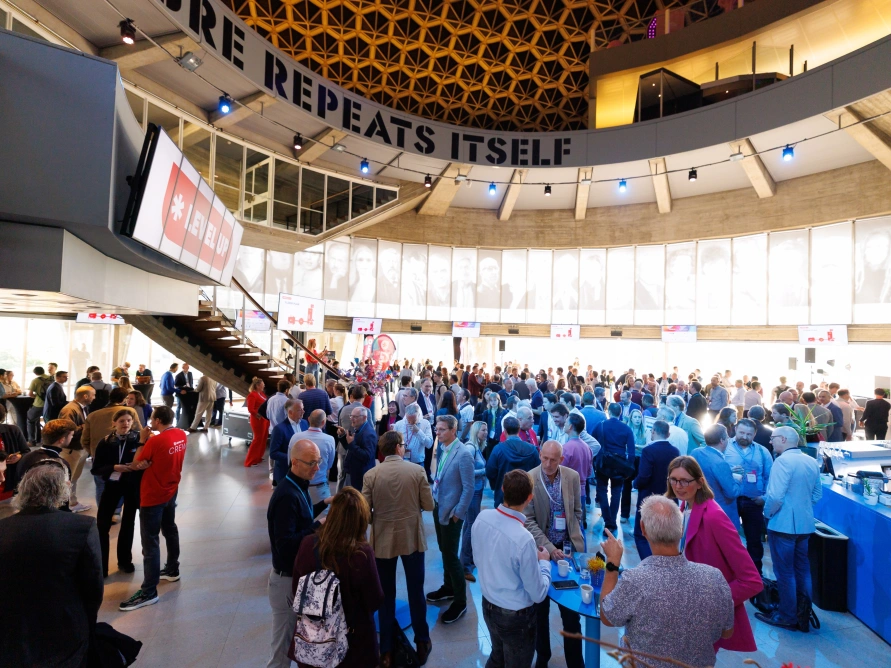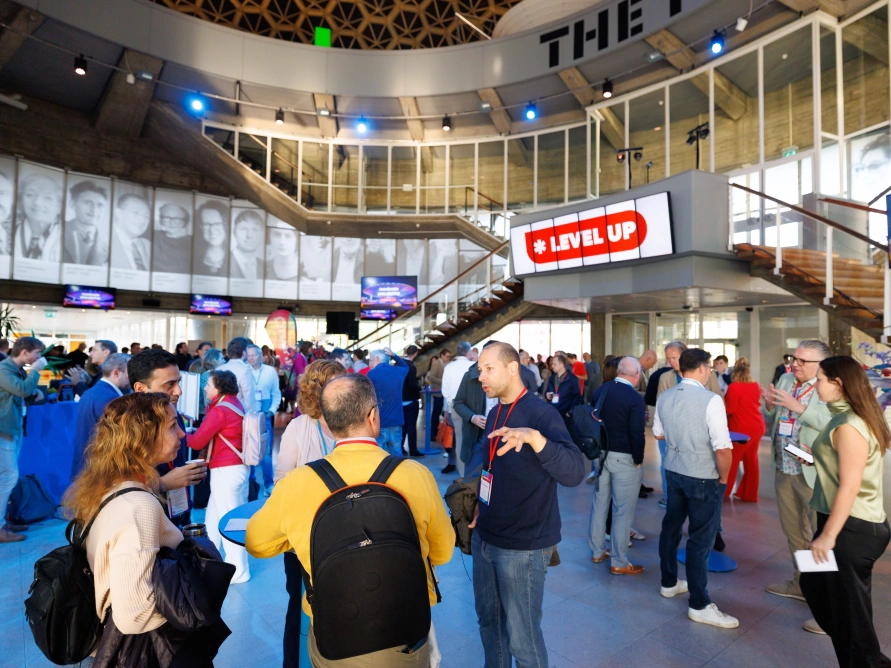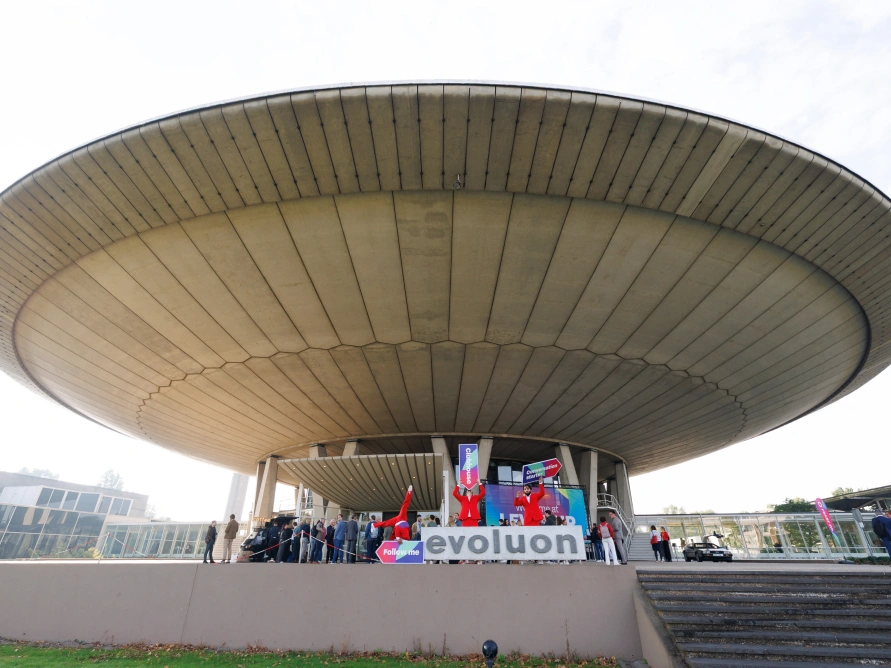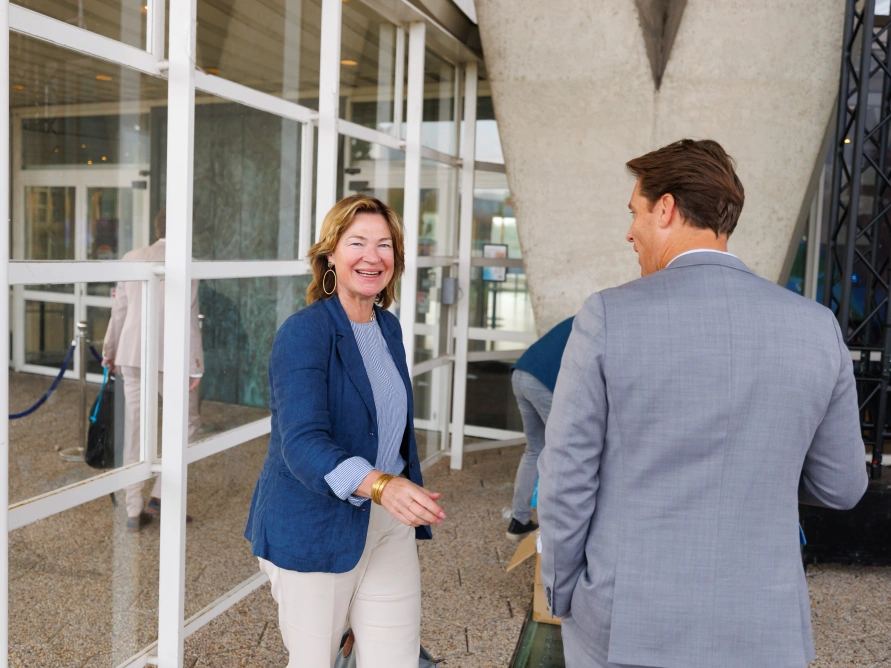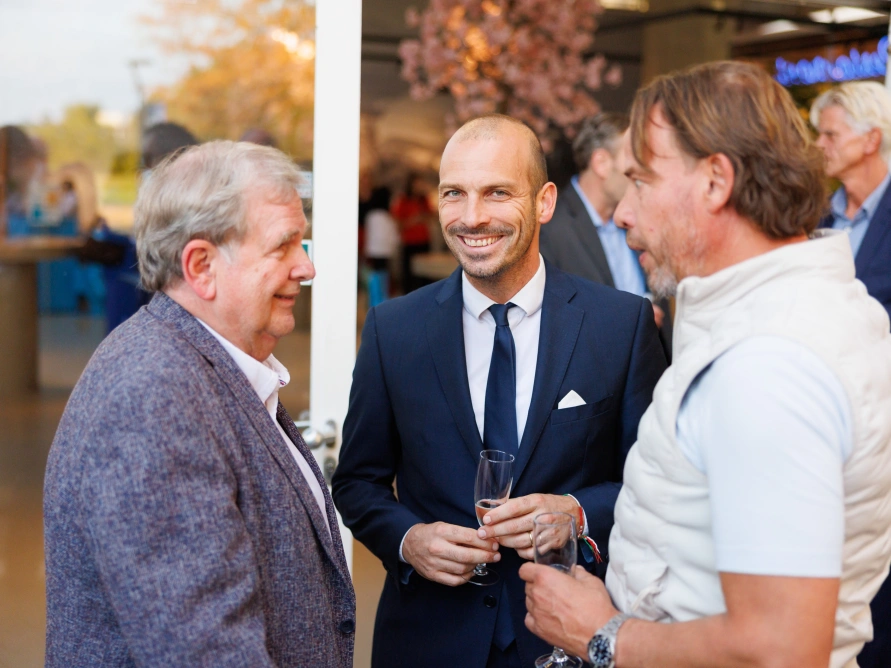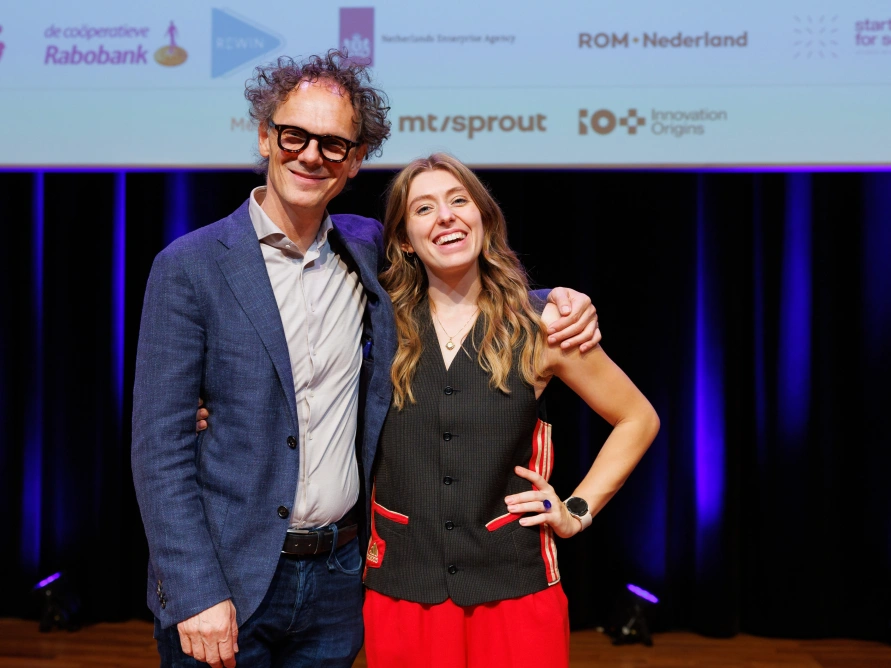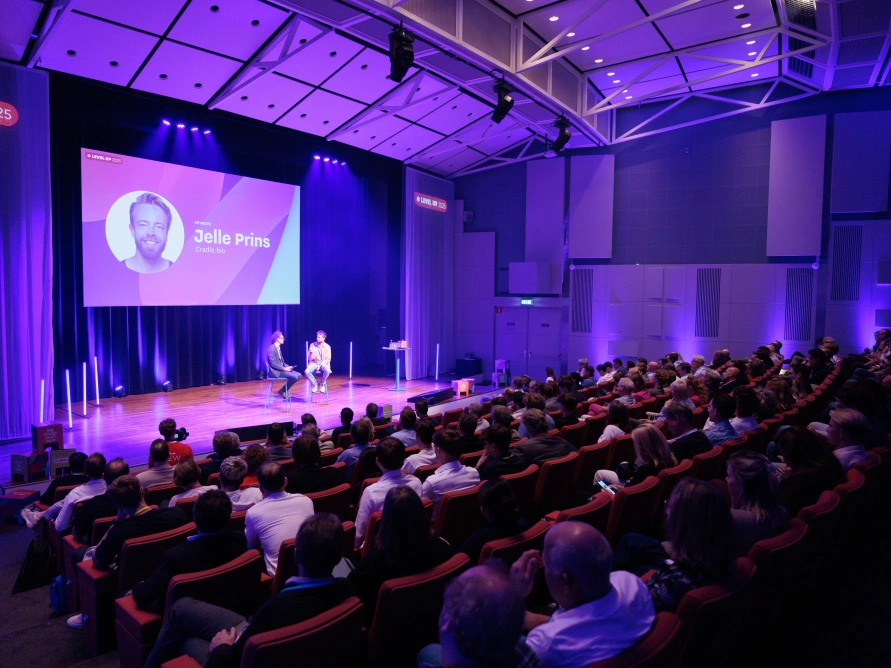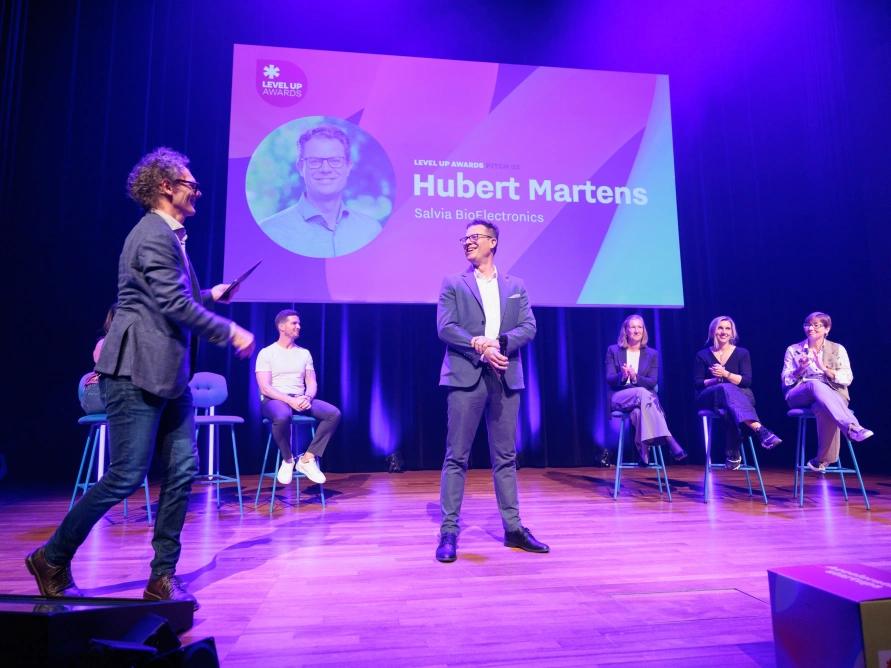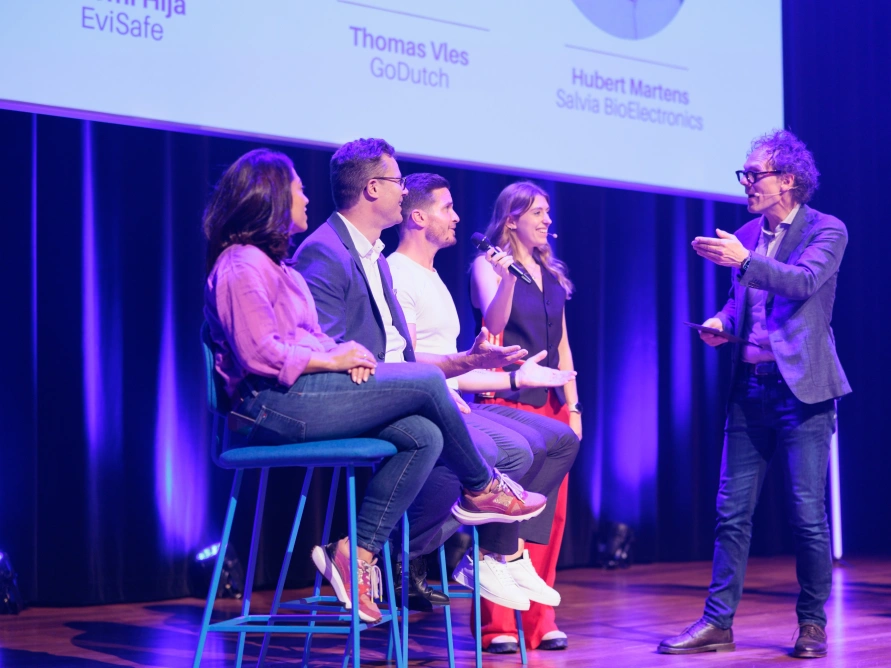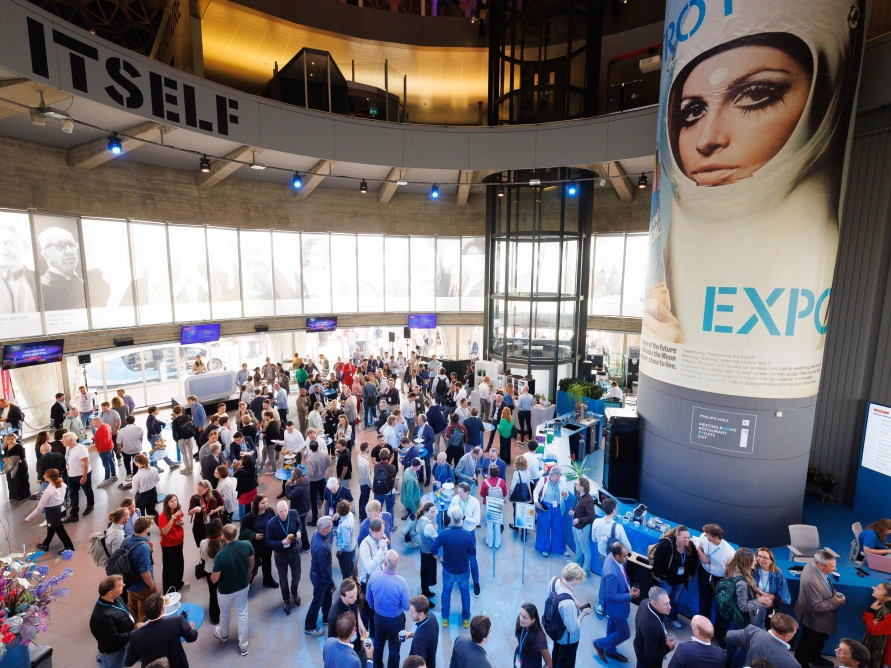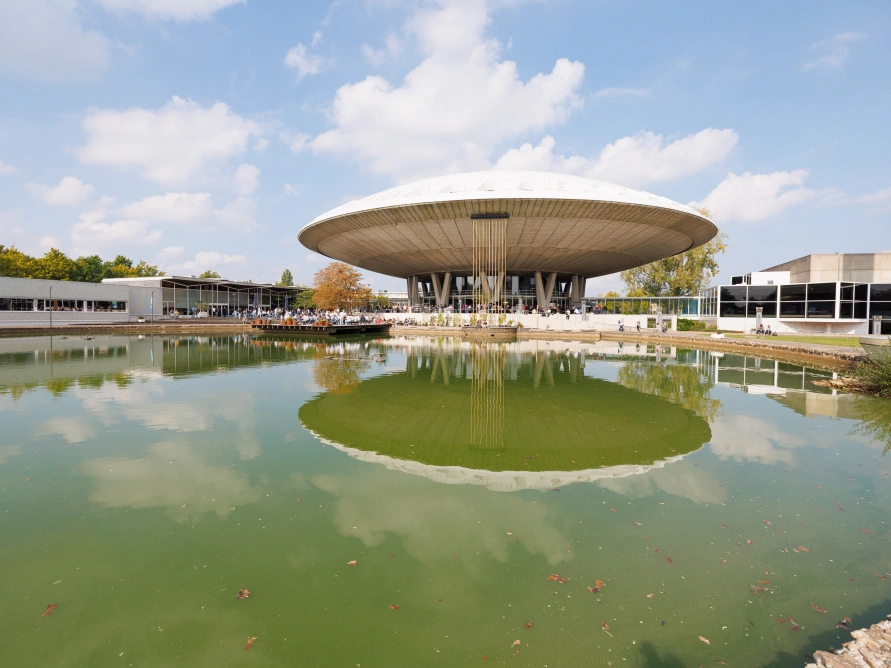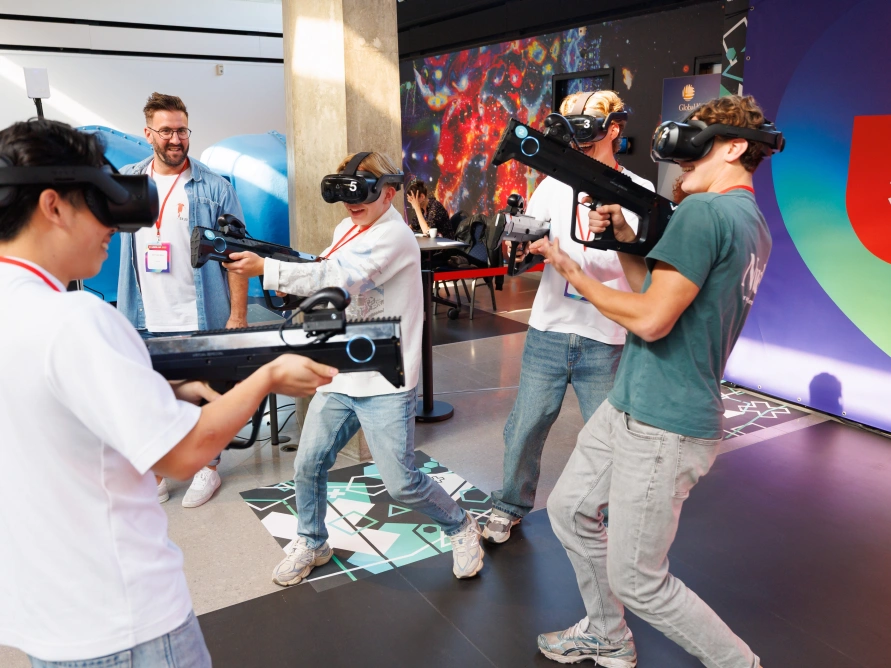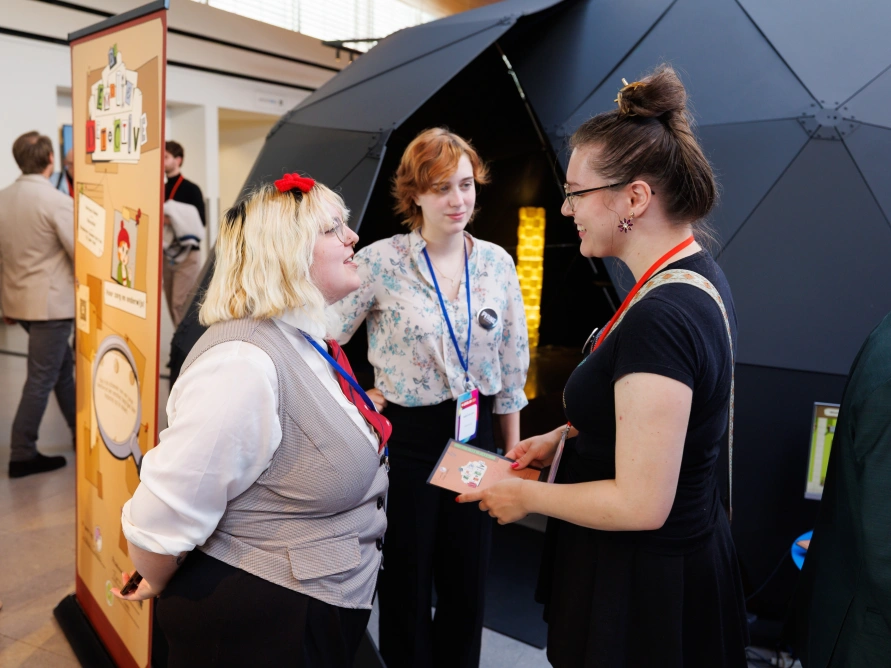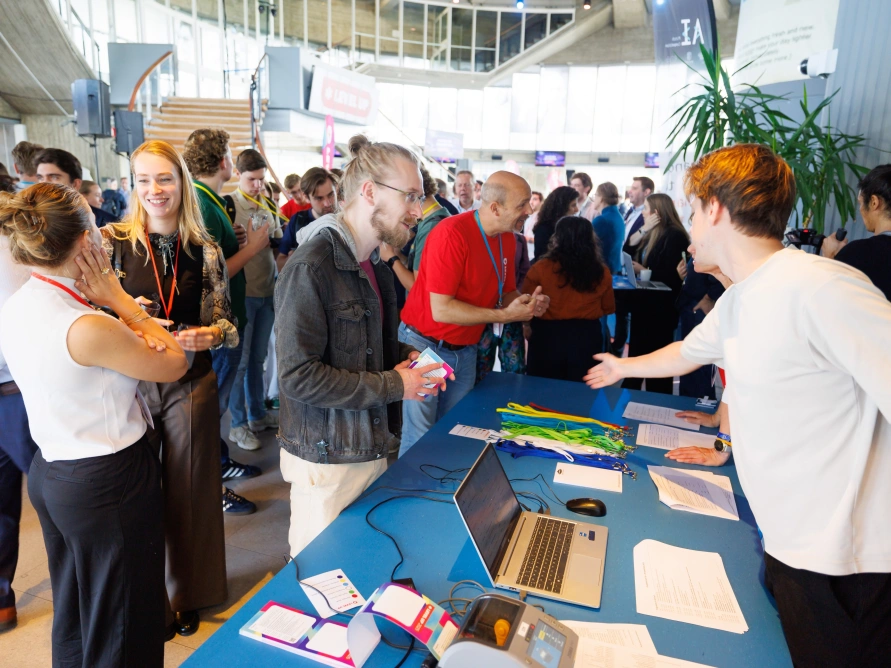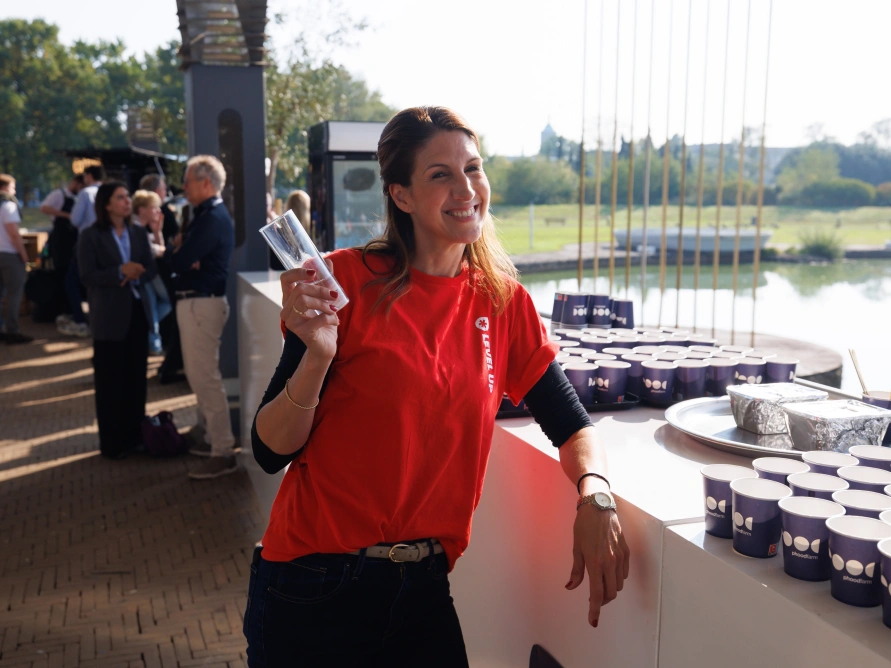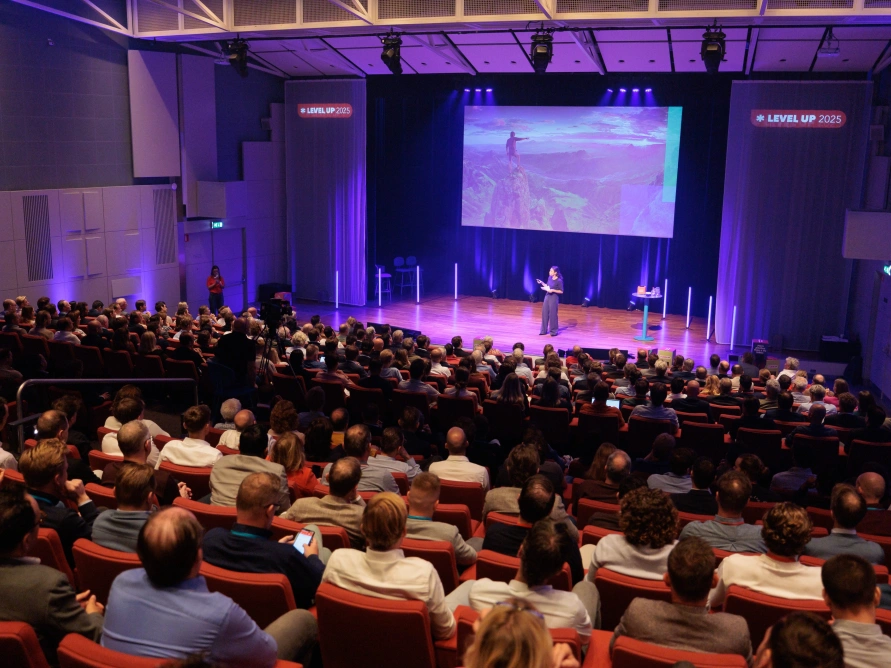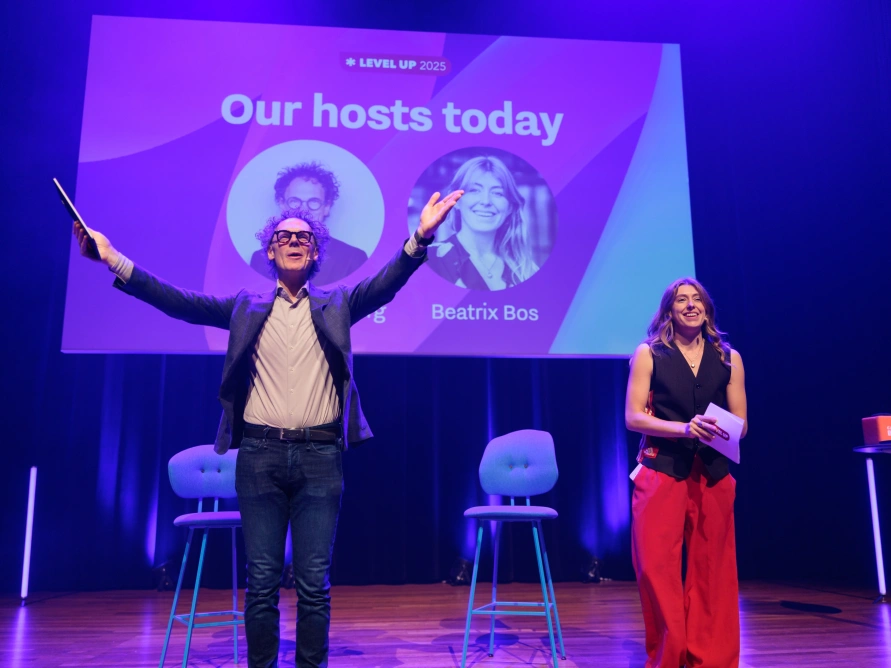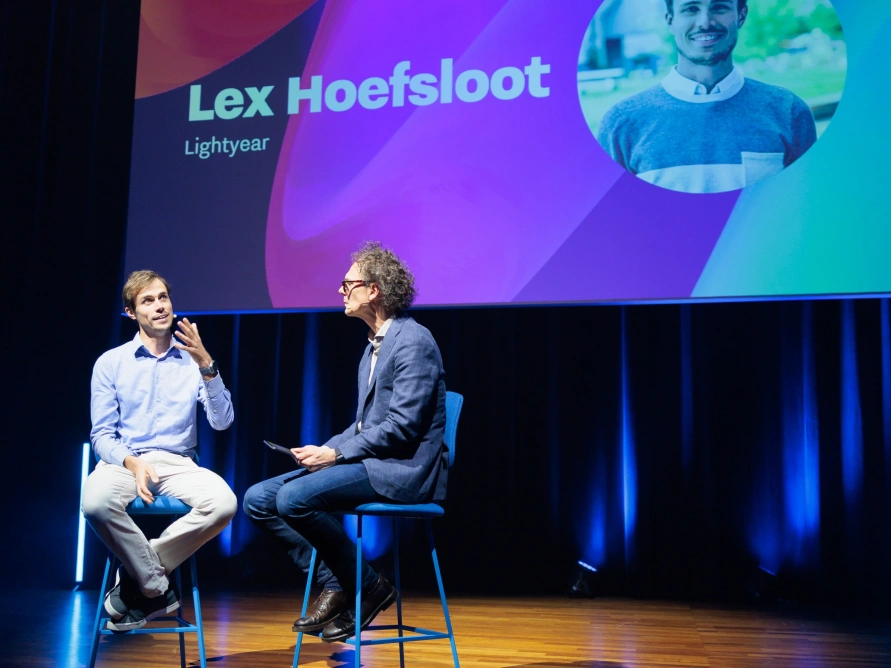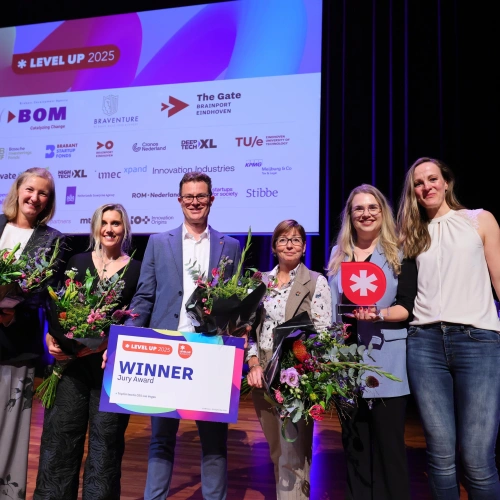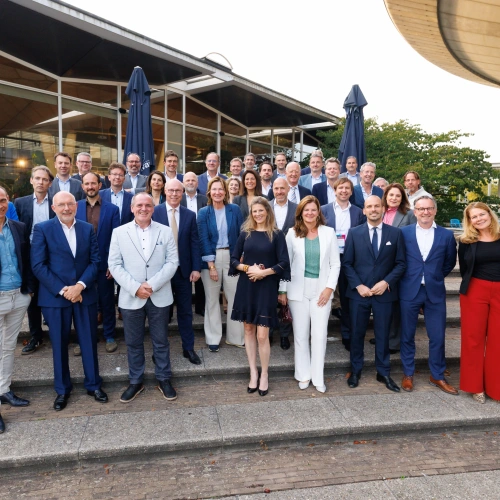He who does not fail, does not win
Failing is difficult. Lex Hoefsloot said this in conversation with chairman Ben van der Burg. Hoefsloot should know: the founder and former CEO of Lightyear saw his dream crumble when his company went bankrupt. Yet he also learned from it: "It is also a weight off your shoulders. It gives you the opportunity to tackle something new. The pressure is gone. You can start building again."
What Hoefsloot experienced, countless entrepreneurs experience. They fail, make mistakes, or go bankrupt. In the Netherlands, that word still has a bad connotation. But is that justified? Of course, it is often disastrous. At the same time, it is part of the journey for many entrepreneurs. And you learn from it. That's why LEVEL UP organized several F*ckup Nights again this year, where entrepreneurs shared what went wrong, what they learned, and how they moved forward.
One thing is certain: failure and bankruptcy do not have to mean the end. Look at Lightyear, which has now restarted and focuses on solar roofs for cars.
More feminine energy is desperately needed
In Eline van Beest's keynote, Operating Partner at Thuja Capital, the power of feminine energy was central. And no, it's not about positioning women versus men, Van Beest assured. In every person, both the feminine and the masculine are represented. Good leaders tap into both sources.
"The goal is masculine. The direction you should go in is feminine", Van Beest said. Where drive and decisiveness are needed to persevere, care, cooperation, and asking questions help to avoid blind spots and to make sustainable choices.
This attitude was valuable when clinical tests showed that the device of her then-company against sleep apnea was not effective enough. The reflex was to immediately work on a solution, but Van Beest chose to slow down: she wanted to thoroughly investigate what was really going on first.
Learn more
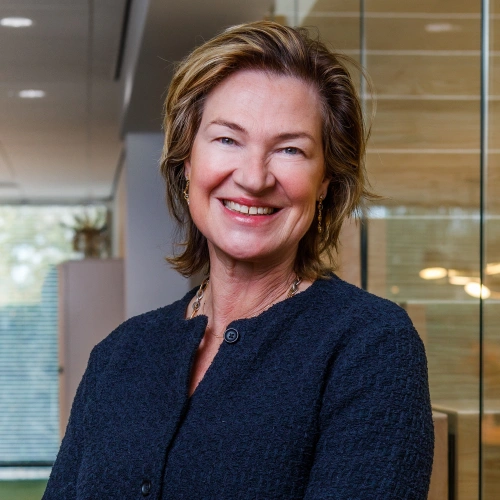
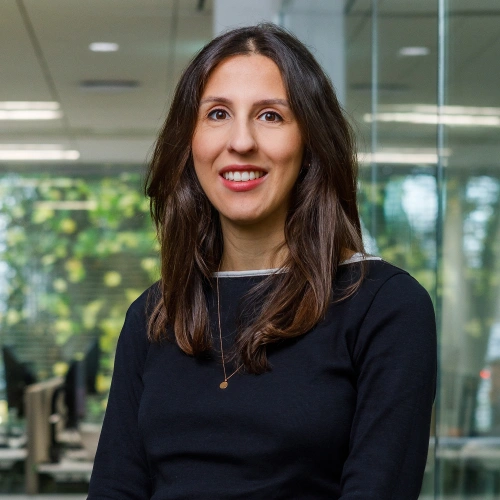
“Everyone thought I was too slow. But by first embracing the problem, we developed new algorithms and created new patents.” It turned out to be the key to success.
Her message: innovation requires a balance from both sides. Startups that combine strength with compassion not only build better companies but also more resilient teams.
Think big and choose consciously
Lex Hoefsloot emphasized how important it is to think big. “Spend even more time on financing. Especially in deep tech, you know from the start that you need a lot of money. Often, it is not unusual to need a billion, or something of that magnitude.” He learned that from day one, he should have mapped out the capital trajectory: anticipating who might step in five or ten years later, and which steps to take today to make that possible.
That also requires looking more internationally. “We have to be realistic: China and the US spend much more money. That is the level at which we need to play.” Therefore, Dutch entrepreneurs should look outward earlier.
Thinking big goes hand in hand with making conscious choices. Hamed Sadeghian, CEO and co-founder of Nearfield Instruments, said about that: “An early investor must bring very different things than one in later rounds. In the beginning, finding a strategic investor was essential for us.”
Later the needs changed. “We are now at a stage where we are saying goodbye to early investors. We want to be independent and able to attract various customers.”
When it comes to AI: ‘shoot for the moon’
The Netherlands cannot afford a waiting attitude when it comes to AI, said Jelle Prins, co-founder of AI company Cradle, in his keynote. “We are convinced that AI will have an impact on every sector. If AI computing becomes the limiting factor for your economy, then an AI infrastructure must be built. You don't want to be dependent on other countries.”
By the way, the Netherlands is certainly not the worst performer when it comes to AI, Prins also argued. “The Netherlands produces many AI scientists. But the best go abroad. They say: ‘we don't find the challenges here that we want to tackle’.”
We must offer them those challenges here, according to Prins. He advocated for ‘moonshots’, such as a national biotech data factory or a fundamental robotics lab.
Competing with the large data models of companies like Open AI is expensive, but according to Prins there are opportunities in specific applications: “I think we should invest in a national AI lab. There we can build specific models for industries in which the Netherlands is already strong.”
Don't forget yourself
The last lesson came from several entrepreneurs: don't forget yourself. Co-chairwoman Beatrix Bos summarized it succinctly: “You don't have to put your entire life into a company. Don't forget who you are. Don't forget that you have a private life. Stay true to yourself.”
Entrepreneurship demands a lot. Success can bring loneliness, pressure, and sacrifices. Yet the stories shared during LEVEL UP showed that staying true to your own identity and well-being is essential for perseverance.
See you next year
Is that all we learned? Of course not! LEVEL UP is the international meeting place for startups, investors, and ecosystem partners with a clear mission: helping startups accelerate. This year, over 1,550 people attended. This means LEVEL UP continues to grow every year, and there is a great need for an annual event. Will we see you next year?
